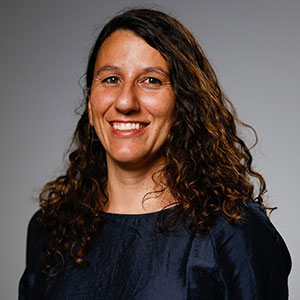Professor Veronica Barassi

IAS Annual Theme: AI:Facts, Fictions, Futures
University of St Gallen, Switzerland
Prof. Barassi researches and writes about the impact of data technologies and artificial intelligence on human rights and democracy. She is an anthropologist, and Professor in Media and Communication Studies in the School of Humanities and Social Sciences at the University of St. Gallen, as well as the Chair of Media and Culture in the Institute of Media and Communication Management. Her previous research focused on social media and political campaigning and the question about digital citizenship. She is the author of Activism on the Web: Everyday Struggles against Digital Capitalism (Routledge, 2015).
For more than five years Prof. Barassi has investigated the impact of children’s data traces on their civic rights, and the meaning of a society which ‘datafies’ its citizens from before birth. She authored the books Child | Data | Citizen: How Tech Companies are Profiling Us from before Birth MIT Press, 2020, and I Figli dell'Algoritmo: Sorvegliati, Tracciati e Profiliati dalla Nascita (LUISS Press, forthcoming). Veronica has been invited to give talks at leading universities in the U.S. and the U.K. such as Stanford University, University of Southern California, University of California Los Angeles, University of California Irvine, Kings College London, and the University of Westminster. Prof. Barassi's Ted Talk on What Tech Companies know about your Children has reached more than 1.9 million views.
In 2021, Prof. Barassi launched a new project which is titled The Human Error Project : AI, Human Nature and the Conflict over Algorithmic Profiling, which combines anthropological theory with critical data and AI research, and aims to investigate the fallacy of algorithms when it comes to reading humans. The aim of our research team – and this website – is to shed light on the fact that the race for AI innovation is often shaped by stereotypical and reductionist understandings of human nature, and by new emerging conflicts about what it means to be human.